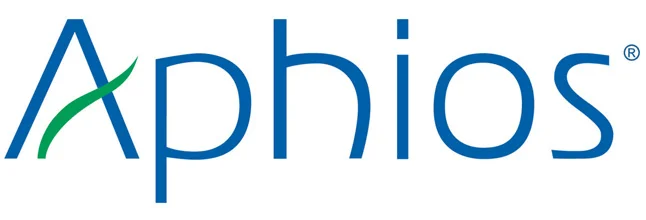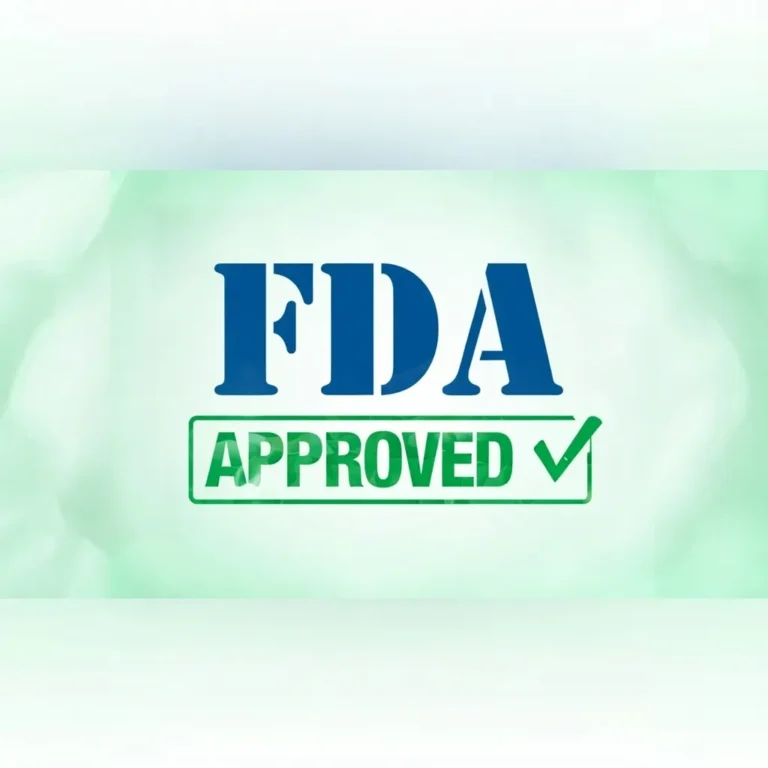
Aphios Corporation Awarded NIH Grant to Advance Botanical Drug Zindol® for Cancer-Related Nausea and Vomiting
Aphios Corporation, a pioneer in the development of advanced botanical pharmaceuticals and nutraceuticals, has received a Small Business Innovation Research (SBIR) Phase I grant from the National Center for Complementary and Integrative Health (NCCIH) at the National Institutes of Health (NIH). This competitive grant will fund the continued development of Zindol®, Aphios’ innovative botanical drug candidate derived from ginger, which is being developed for the treatment of chemotherapy-induced nausea and vomiting (CINV) — a debilitating side effect of cancer treatment that continues to affect a majority of patients despite modern antiemetic therapies.
Addressing an Unmet Clinical Need
Nausea and vomiting remain among the most distressing and treatment-limiting side effects experienced by cancer patients undergoing chemotherapy. Estimates indicate that up to 70% of adults receiving highly emetogenic chemotherapy agents experience CINV, which can persist even when treated with currently available pharmaceutical options such as 5-HT3 receptor antagonists and NK-1 receptor antagonists. For many patients, the persistence and severity of nausea and vomiting result in an unwillingness or inability to complete subsequent chemotherapy cycles — a decision that can be life-threatening due to treatment interruption or dose reduction.
While pharmaceutical interventions have advanced significantly, the complex pathways underlying CINV mean that synthetic drugs often fail to address all symptoms effectively. This has created an ongoing need for safer, more comprehensive, and better-tolerated therapeutic alternatives. Aphios aims to meet this challenge through Zindol®, an evidence-based botanical drug candidate that leverages natural bioactive compounds found in ginger.
Zindol®: A Botanical Innovation Rooted in Science
Zindol® is a highly purified, standardized botanical drug formulated using Aphios’ patented SuperFluids™ extraction technology, a green chemistry platform that enables the efficient isolation of bioactive compounds without harmful solvents. The drug contains concentrated levels of gingerols and shogaols — the two primary bioactive components responsible for ginger’s well-documented anti-nausea and anti-inflammatory effects.
Prior clinical research conducted on an earlier version, Zindol® DS, a dietary supplement-grade formulation with approximately 30% purity, has provided strong evidence supporting the therapeutic potential of this approach. In studies involving over 600 cancer patients, Zindol® DS demonstrated a statistically significant reduction in nausea (p=0.003) and showed superior efficacy compared to Zofran® (Ondansetron) — one of the most commonly prescribed pharmaceutical antiemetics — without causing adverse side effects.
Beyond chemotherapy-induced nausea, Zindol® DS has also been shown to reduce symptoms associated with motion sickness, morning sickness, postoperative nausea, and nausea linked to medications such as GLP-1 receptor agonists used in weight loss treatments. Moreover, the product has been safely used by pregnant women to alleviate morning sickness, reinforcing its favorable safety profile and tolerability.
Advancing Toward a Next-Generation Formulation
With this new NIH SBIR Phase I award, Aphios will advance the development of a next-generation formulation of Zindol® that exceeds 90% purity of gingerols and shogaols. The grant will specifically support three key objectives:
- Formulation Development: Refining Zindol® into a next-generation botanical drug with enhanced bioactive concentration and improved stability.
- Quality and Stability Assessment: Establishing stringent product stability and release criteria in accordance with FDA botanical drug development guidelines.
- In Vitro Validation: Evaluating Zindol®’s efficacy using a cutting-edge in vitro nausea model designed to simulate human gastrointestinal responses.
These studies are expected to provide critical preclinical data supporting an Investigational New Drug (IND) application and enable the company to proceed into Phase II toxicology studies and eventual Phase III clinical trials.
Leadership Perspective: A Milestone for Botanical Drug Development
“We are honored to receive this highly competitive NIH award at this pivotal time,” said Dr. Trevor P. Castor, PhD, President, Founder, and CEO of Aphios Corporation, and the Principal Investigator of the Zindol® project. “It validates both the near-term and long-term promise of Zindol® as a safer and more effective solution for patients undergoing chemotherapy or receiving treatments for obesity that cause nausea.”
Dr. Castor added, “This support from NIH allows us to advance Zindol® toward clinical trials and ultimately provide cancer and obesity patients with a safe, effective, and much-needed therapeutic option — one derived entirely from a common food spice that has been used medicinally for centuries.”
Potential to Transform the Anti-Nausea Market
If Zindol® achieves the clinical outcomes anticipated based on prior research, the therapy could represent a paradigm shift in the management of nausea and vomiting associated with cancer treatment and other medical interventions. Its botanical origin and strong safety record position it as a natural, cost-effective alternative to synthetic antiemetics.
Unlike most pharmaceutical agents, Zindol® could potentially reduce or even eliminate the need for polypharmacy, thereby lowering treatment costs and minimizing side effects related to drug interactions. Aphios estimates that the global antiemetics market, currently valued at approximately $3.4 billion, lacks any comparable botanical-based therapeutic alternative. This gap presents a significant commercial opportunity for Zindol® as a first-in-class botanical drug that blends traditional plant-based medicine with modern pharmaceutical rigor.

Aphios intends to pursue strategic partnerships or licensing agreements with major pharmaceutical companies to accelerate the commercialization of Zindol® following successful completion of clinical development.
The Science Behind Aphios’ SuperFluids™ Technology
Central to Aphios’ success in developing Zindol® is its proprietary SuperFluids™ technology platform, which employs environmentally friendly supercritical fluids (such as carbon dioxide) to extract, purify, and process bioactive compounds. This approach offers several advantages over conventional solvent-based extraction, including:
- Elimination of toxic solvent residues, ensuring higher purity and safety for human consumption.
- Improved yield and consistency of target bioactives like gingerols and shogaols.
- Sustainability and scalability, aligning with Aphios’ commitment to green pharmaceutical manufacturing.
By combining traditional botanical wisdom with advanced extraction and drug formulation science, Aphios is creating pharmaceutical-grade products that meet modern regulatory standards while preserving the therapeutic integrity of natural compounds.
Future Roadmap: From NIH Support to Clinical Reality
The NIH award not only provides crucial financial support but also validates the scientific and clinical merit of Aphios’ work. Upon completion of Phase I development milestones, Aphios plans to:
- Conduct IND-enabling toxicology studies to ensure safety and compliance with FDA botanical drug development guidelines.
- Initiate Phase II clinical trials to confirm efficacy and tolerability in cancer patients undergoing chemotherapy.
- Prepare for Phase III pivotal studies, which would establish Zindol®’s efficacy as a prescription botanical drug for CINV and related indications.
Through this process, Aphios aims to position Zindol® as a first-in-class botanical therapeutic, potentially leading the way for future plant-based drugs addressing other treatment-resistant side effects in oncology and metabolic disease.
About Aphios Corporation
Founded over 25 years ago, Aphios Corporation is a biopharmaceutical company focused on leveraging green, enabling technologies to improve the discovery, development, and delivery of therapeutic products. The company’s research pipeline spans oncology, infectious diseases, central nervous system (CNS) disorders, and other major unmet medical needs, along with wellness-focused nutraceutical products that enhance quality of life.
Aphios holds more than 85 issued patents worldwide and continues to develop solutions that integrate environmental responsibility with pharmaceutical innovation. By combining cutting-edge technology and traditional medicinal knowledge, Aphios is pioneering a new era of sustainable drug development aimed at delivering safer, more natural, and more effective therapies.
In summary, Aphios Corporation’s NIH-funded advancement of Zindol® marks a critical step forward in redefining nausea management for patients undergoing chemotherapy and other treatments. By harnessing the therapeutic potential of ginger through its advanced extraction technologies, Aphios is bridging the gap between nature and modern medicine — with the potential to significantly improve patient outcomes, enhance quality of life, and reshape the global antiemetic market





